Purpose The purpose of this narrative inquiry was to explore the educational meaning of managing a specialist physical education school (SPES) and to suggest policy supports. Methods Semi-structured interviews with a physical education teacher who had managed a SPES and document analysis were undertaken. Data collected were analysed using constructivist grounded theory. Results In telling, four themes were described, which include: backgrounds that the teacher took over the SPES, cases of reforming the SPES and its impacts, pressures from a private physical education alliance, and the SPES has a long road ahead. In re-telling, a need of re-conceptualizing public education based physical education career education and four policy supports were discussed. Conclusions Developing a range of models for SPES-community connection, exploring longitudinal effectiveness of managing SPES as physical education career education, and exploring effective SPES models for student-athletes are suggested as future research.
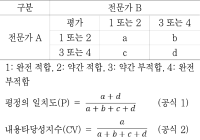
Purpose Common content knowledge(CCK) is composed of rules, techniques, and tactics. Such knowledge is a requirement for effective teaching of physical education (PE). There are, however, few validated tests of CCK. Thus, the purpose of this study was to develop a CCK test of soccer and evaluate the validity and reliability of the test using Rasch modeling (Rasch, 1980). Methods We developed thirty item common content knowledge test for soccer. Then, we used Rasch modeling to evaluate the validity and reliability of a test of soccer. Pre-service teachers (N=92) majoring in physical education and non-PE major (N=111) participated in this study. Results Thirty questions demonstrated good item-model fit. Moderately high internal consistency for person-ability and high internal consistency for item-difficulty are reported. Both Infit and Outfit statistics showed a good fit between the data and the Rasch model. Conclusions The analysis provides evidence to support the validity and reliability of this instrument as a CCK test of soccer. Limitations of the study were discussed and suggestions were provided to improve the test.

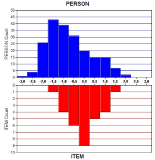
Purpose The purpose of the study is to review the current trends of Korean research on sport volunteering. Methods For the research purpose, 74 KCI-listed articles published were investigated. Results The main topics of 60 articles were sport volunteering and the sub-topic or factor of the other 14 articles was sport volunteering. These articles were classified based on the publishing year, type of journal, academic area, research method, research topic, research sample, volunteer characteristics and volunteer area. Research on sport volunteering has been continuously conducted but the number of related publications has been increased since 2009. Sport volunteer research articles have been published in various sport related journals. However, the majority of the research articles are in the research areas of sport management, sport pedagogy, adopted physical education, and sport policy. Regarding the research method, more than a half of the articles were the ones using quantitative research methods, but qualitative research methods were often used as well. The majority of the research were conducted on volunteers but the research conducted on the beneficiaries of volunteer services were few. Many of the volunteers researched were college students. Event volunteering and educational volunteering were common volunteering areas in the research articles. Conclusions Korean researchers should not only conduct more research on sport volunteering with various topics but also improve the quality of the research after conducting the in-depth review of theories and literature and the better understanding about Korean situation on sport volunteering.
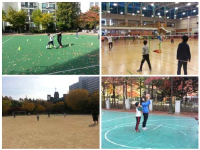
Purpose The purposes of this study were to examine the influence of a formal sports mentoring program on mentors(pre-service PE teachers), and to identify main factors affecting educational growth of the pre-service teachers. Methods Data were generated in this study using: In-depth interviews, mentoring observations, and document resources from 4 mentors and their mentees as research participants. The collected data were inductively analyzed as an iterative process of working back and forth between the data and the categories(Miles & Huberman, 1994). Results The key findings of this study are as follows. First, mentors developed pre-service teachers’ practical knowledge including teaching knowledge, environment knowledge, student knowledge within teaching contexts. Furthermore, they practiced mentee-centered education through sports mentoring not only by mentees but also for mentees. Second, with respect to the factors impacting mentors’ educational growth, there were two main factors; the systematic structure of a program and mentors’ reflexivity. Mentors improved practical knowledge through the circular ‘experiential learning’ phases the sports mentoring program provided. In addition, mentor had valuable opportunities to learn how to care mentees by reflecting on positive and negative influences deriving from interactions with their mentees. Conclusion Potential benefits were embedded in inherent nature of sport and the unique structure of mentoring. sports mentoring can provide experience of learner-friendly teaching distinct from classes of lecture type. It is necessary to be reconsidered as pre-service PE teacher education program with opportunities of other teaching practice.

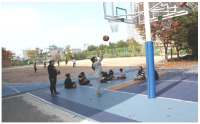



Purpose This study aims at investing the educational meanings of school physical education policy by analyzing the direction (ideal goal, goal, objective and program) of the policy in Korea and England. Methods The comparative research design was conducted by the policy literature analysis. In order to clarify the significance of the main discourse embedded the school physical education policy to the educational practice, I used qualitative content analysis based on the interpretive paradigm. Results The school physical education policy in Korea is divided into goal for general students and student athletes for 'happy students and school life', while the policy in England seeks to promote participation of competitive sports through school-community linkage for lifelong sports participation. As a result of the discourse analysis, the ambiguity of school physical education policy due to the complexity of various discourses (e.g. moral development, health, sports) diminishes the effectiveness of policy implementation as well as the teachers’ educational practice. In addition, competition sports discourse has been analyzed to limit the participation of many students in sports and to adversely affect lifelong participation in sports. Conclusions In conclusion, It is necessary to activate theoretical and empirical research that is the basis of building the school physical education policy direction and to establish cooperative governance for the policy implementation. In addition, student participation in lifelong sports and evidence-based policy making and practice are required.


The purpose of this study was (1) to develop a archery lesson using forced connection method-sportcasting for cultivating collaborative problem-solving competencies, and (2) to apply and to examine the responses of students after physical education(PE) lesson. A archery lesson of Understanding-Performance-Appreciation step was developed according to LfPE(Lee, 2014) using backward curriculum design. Participants were tenth grade students (N=148) in a high school. Open-ended question used to collect the data. The analysis of data indicates that students expressed features in lessons. Six features are (a) 朋友信之, (b) 君子不器, (c) 能竭其力, (d) 觀其所由, (e) 溫故知新, (f) 思而不學. In-depth interviewers were carried out for further analysis of the answers to the questionnaires. The results are as follows. First, 朋友信之 means lesson cultivating collaborative problem solving competencies. Second, 君子不器 means pleasant and funny lesson. Third, 能竭其力 means lesson cultivating self management ability. Fourth, 觀其所由 means lesson cultivating appreciativeness for archery. Fifth, 溫故知新 means lesson improving the status of PE teacher and school. This study concluded that a archery lesson generated fun and interest for students. Implication for developing lesson using LfPE, utilize and transform forced connection method-sportcasting in PE were discussed.



Based on the expanding concept of public value in most of areas as well as in public administration, the purpose of this study is to explore the meaning and functions of public value in sport pedagogy in Korea. For doing this, this paper has classified the concept of public value into classical and modern concepts and re-conceptualized it throughout diverse concepts implemented in several areas (e.g., social welfare, media, & culture-arts). Thus, this paper has explored the meaning of public value in sport pedagogy for analyzing the common element among the public values of sport, education, and scholarship. The public value of sport pedagogy is conceptualized as ‘the discipline that has inquired the public knowledge and also that has been served the instrumental role for making better society’. In addition, this paper has suggested the conceptual framework to extend the areas that can be applied the public value of sport pedagogy inside and outside in Kinesiology with reflection about academic and practical activity of Sport Pedagogy. Lastly, this paper has searched the multiple functions of public value in Sport Pedagogy such as educational, cultural, integrative, and global functions that could connect the academic and professional activity of Sport Pedagogy into making the public value of Sport Pedagogy.


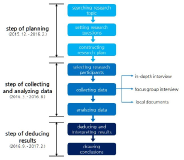
[Purpose] The purpose of this study was to explore the formation process and influential factors of professional identity for the establishment and growth of physical education(PE) teachers majoring in dance. [Methods] Based on the phenomenological research method, data from the interviews, focus group interviews, and local document were collected and analyzed from ten teachers. [Results] First, we explored the process of professional identity formation of PE teachers majoring in dance. It appeared in four stages, 'stranger,' 'adaptation,' 'settler,' and 'pioneer.' Second, we explored the factors of forming the professional identity of the PE teachers majoring in dance. The factors influencing the process of identity formation from the stranger to the adaptation were 'utilization of various training' and 'imitation of their mentor.' The factors influencing the formation process of identity formation from the adaptation to the settler were 'recognition and support of fellow teachers' and ‘opportunity of professional development.’ The factors influencing the process of identity formation from the settler to the pioneer are ‘sense of commitment as a PE teacher,’ ’constant attitude of study and learning.’ [Conclusion] The results suggest that the formation of professional identity of PE teachers majoring in dance goes through a certain stage, and the environment is important as well as the active effort and potential attitude of individual.


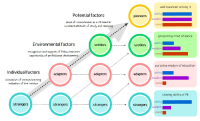
PURPOSE This study aimed to analyze the sport biomechanics questions in the ‘Secondary Physical Education Teacher Recruitment 1st Exams’ and find the orientation for future exams. METHODS Twenty-one sports biomechanics questions (49 detailed questions) in the last 7 years (2016-2022) were classified into four types (evaluation content factors, classification of educational goal, sports application or not, classroom connection, and including calculation) and analyzed. RESULTS The recruitment exams had the following characteristics. First, only approximately 22.4% of the questions were related to the secondary physical educational field. Second, only 34% were sports-applied questions. In addition, according to Bloom's classification of educational evaluation, 36.7% of knowledge-level questions, 40.8% comprehension-level questions, and 22.4% application-level questions were accounted for. Finally, the questions tended to be considerably biased towards specific items (kinetics and kinematics understanding and application of linear and angular motion). CONCLUSIONS Sport biomechanics questions in the ‘Secondary Physical Education Teacher Recruitment 1st Exams’ should be based on questions that are likely to occur in the field of secondary physical education, to occur in real sports situations, and to be asked by students. Additionally, rather than asking for simple knowledge or comprehension, the proportion of questions in the application level should be increased.

Purpose The purpose of this study was (1) to develop and to apply the PE classes based on Sportscasting Model on Creativity and Character and (2) to analyze the effects of PE classes on Creativity and Character. Methods Participants were 10th high school students(N=172) who had not experienced PE classes on Sportsasting Model. Data were collected using An Integrated Creativity Test(Lee & Lew, 2012), open-ended questionnaires and in-depth interviews with students. The data were analyzed through paired samples t-test and qualitative content analysis. Results Results showed that (1) Table-tennis and volleyball lessons on Sportscasting Model were developed and applied, and (2) significant differences were observed in creative thinking and creative personality of students’ creativity scores after lessons. And 14 creativity factors and 10 character factors were drawn from the analysis of questionnaires and interviews. Conclusion And to conclude, Sportcasting Model is efficient in developing creativity and character. Discussions were provided in terms of the development and application of PE classes based on Sportsasting Model and the effectiveness of Sportscasting Model.


